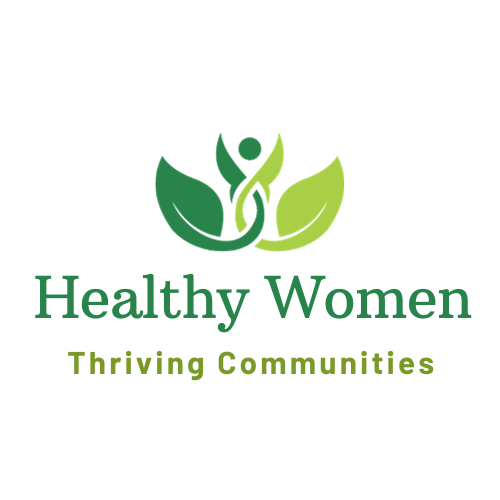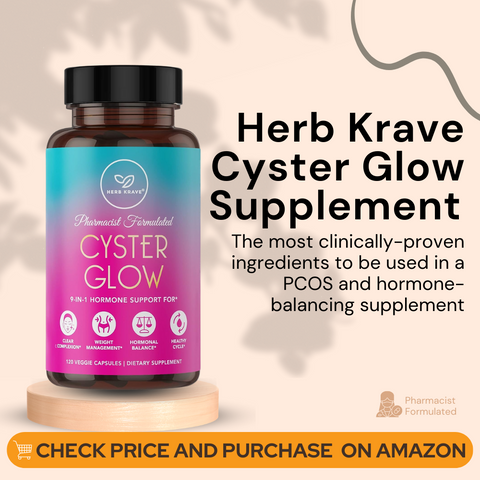Polycystic Ovary Syndrome (PCOS) is a common health condition that affects millions of women worldwide. It can cause a wide range of symptoms, making it a challenging condition to manage. Understanding PCOS is crucial because it affects not only a woman's reproductive health but also her overall well-being. This article will explore what PCOS is, the causes behind it, and the treatments and remedies available for managing PCOS symptoms.
What is PCOS (Polycystic Ovary Syndrome)?
PCOS is a hormonal disorder that affects women of reproductive age, typically between the ages of 15 and 44. The name "polycystic" means "many cysts," which refers to the small, fluid-filled sacs that can develop on the ovaries in women with this condition. However, not all women with PCOS have these cysts, and the presence of cysts alone doesn't mean a woman has PCOS.
The primary issue with PCOS is an imbalance in a woman's hormone levels, particularly the levels of androgens, which are often called "male hormones" because they are present in higher levels in men. Women with PCOS may have higher than normal levels of androgens, which can lead to various symptoms such as irregular periods, acne, and excessive hair growth.
PCOS can also interfere with the normal development and release of eggs during ovulation. This can make it difficult for women with PCOS to get pregnant, and it is one of the leading causes of infertility in women.
What Causes PCOS?
The exact cause of PCOS is not fully understood, but several factors are believed to contribute to the development of this condition. These factors include genetics, insulin resistance, and inflammation.
Genetics
Genetics plays a significant role in the development of PCOS. Women with a family history of PCOS are more likely to develop the condition themselves. Researchers have identified certain genes that may be linked to PCOS, although more studies are needed to fully understand the genetic aspects of the disorder.
Insulin Resistance
Insulin resistance is a common feature of PCOS and is believed to be a major contributing factor. Insulin is a hormone that helps the body use sugar (glucose) from the bloodstream for energy. In women with insulin resistance, the body's cells don't respond as well to insulin, leading to higher levels of insulin in the blood. This excess insulin can increase the production of androgens, which can disrupt the normal functioning of the ovaries and contribute to PCOS symptoms like irregular periods and weight gain.
Inflammation
Low-grade inflammation is another factor that may contribute to the development of PCOS. Inflammation is the body's natural response to injury or infection, but chronic, low-level inflammation can lead to health problems. Women with PCOS often have higher levels of inflammation, which can further increase androgen levels and exacerbate symptoms.
Treatments and Remedies for PCOS Symptoms
While there is no cure for PCOS, there are several treatments and remedies that can help manage the symptoms and improve quality of life. These treatments typically focus on addressing the underlying causes of PCOS, such as insulin resistance and hormone imbalances, as well as relieving specific symptoms.
Lifestyle Changes
Making healthy lifestyle changes is one of the most effective ways to manage PCOS symptoms. A balanced diet, regular exercise, and maintaining a healthy weight can help regulate insulin levels and reduce symptoms like irregular periods and acne. For example, a diet rich in whole foods, such as fruits, vegetables, lean proteins, and whole grains, can help manage blood sugar levels and improve insulin sensitivity.
Medications
Several medications are commonly prescribed to help manage PCOS symptoms. Birth control pills are often used to regulate menstrual cycles and reduce androgen levels, which can help with symptoms like acne and excessive hair growth. Metformin, a medication typically used to treat type 2 diabetes, can also be prescribed to improve insulin sensitivity and regulate periods.
For women trying to conceive, fertility medications like clomiphene or letrozole may be recommended to stimulate ovulation. In some cases, doctors may suggest using anti-androgen medications to reduce the effects of excess androgens, such as hair loss and unwanted hair growth.
Natural Remedies
Some women with PCOS find relief from symptoms through natural remedies and supplements. For example, supplements like inositol and omega-3 fatty acids may help improve insulin sensitivity and reduce inflammation. Herbal remedies, such as spearmint tea, have also been suggested to help reduce androgen levels and improve symptoms like acne and hirsutism (excessive hair growth).
It's important to note that while natural remedies can be helpful, they should be used under the guidance of a healthcare professional, especially when combined with other treatments.
Managing Stress
Stress can worsen PCOS symptoms, so finding effective ways to manage stress is crucial. Techniques like yoga, meditation, and deep breathing exercises can help reduce stress levels and improve overall well-being. Additionally, getting enough sleep and practicing good sleep hygiene can help regulate hormones and improve symptoms.
Regular Monitoring
Women with PCOS should have regular check-ups with their healthcare provider to monitor their symptoms and adjust treatment plans as needed. Regular monitoring is especially important for managing potential complications of PCOS, such as type 2 diabetes, high blood pressure, and cardiovascular disease.
PCOS is a complex condition that can affect many aspects of a woman's life, from her menstrual cycle to her ability to conceive. Understanding the causes and symptoms of PCOS is the first step toward managing the condition effectively. While there is no cure for PCOS, a combination of lifestyle changes, medications, natural remedies, and stress management can help alleviate symptoms and improve quality of life. If you suspect you have PCOS, it's important to consult with a healthcare provider for an accurate diagnosis and personalized treatment plan.
Affiliate Information
Healthy Women Thriving Communities is an affiliate for some or all of the products on this page. When you click the link and purchase on Amazon, you help support our mission to We are dedicated to empowering women by providing education, natural remedies, and supportive supplements to help them take control of their hormonal health. We believe that every woman deserves access to the resources and knowledge necessary to lead a healthy and balanced life.
Thanks for your support!
Medical Disclaimer
Healthy Women Thriving Communities maintains this website for information, education, and communication purposes. Nothing on this website should be construed as a promotion or solicitation for any products, or for the use of any product in a particular way that is not authorized by the laws and regulations of the country where the user is located.




